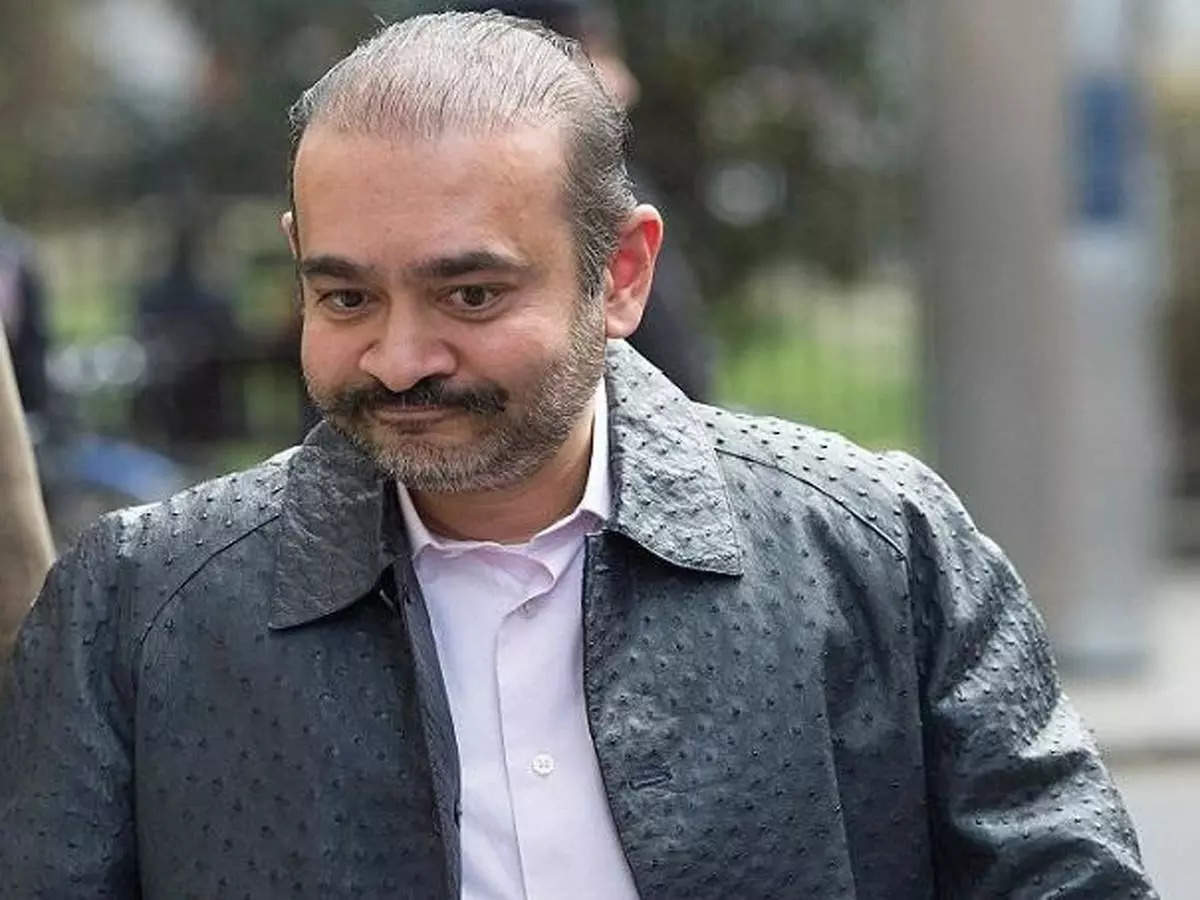
Fugitive Indian businessman Nirav Modi on Thursday suffered a major setback in his legal battle against his extradition to India as the London High Court denied him permission to appeal against the move in the UK Supreme Court.
In a judgment order pronounced at the Royal Courts of Justice in London, Lord Justice Jeremy Stuart-Smith and Justice Robert Jay ruled that “the Appellant’s (Nirav Modi) application for permission to appeal to the Supreme Court is refused”.
Modi, who fled India in 2018, days before details of his alleged involvement in Rs 11,000 crore fraud at the Punjab National Bank became public, had argued there is a high risk of suicide if he is extradited.In a ruling delivered speedily within just over a week of the UK’s Crown Prosecution Service (CPS) submitting its response to the 51-year-old diamantaire’s permission to appeal application on behalf of the Indian government, the judges also ruled that the “certification of a point of law be refused” that would have allowed his plea to progress to the higher court.
An appeal on the grounds of a point of law of general public importance is a high threshold that is not met very often and this refusal significantly limits Modi’s remaining legal options in the UK against extradition to India.
Last month, Modi lost an appeal on mental health grounds when the same two-judge High Court bench ruled that his risk of suicide is not such that it would be either unjust or oppressive to extradite him to India to face charges in the loan scam case. The London High Court had stated, “We are far from satisfied that Nirav’s mental state and the risk of suicide are such that it would be either unfair or oppressive to extradite him. “The dismissal of the High Court appeal last month marked a major win for the Central Bureau of Investigation (CBI) and Enforcement Directorate (ED) case against the businessman, who has been behind bars at Wandsworth Prison in London since his arrest on an extradition warrant in March 2019. Modi can now apply to the European Court of Human Rights (ECHR) to try and block his extradition on the basis that he will not receive a fair trial and that he will be detained in conditions that breach Article 3 of the European Convention on Human Rights, to w The Ministry of External Affairs (MEA) later welcomed the UK High Court’s decision to reject Nirav’s plea.
“India has been vigorously pursuing the extradition of economic fugitives so that they face justice in India. We welcome the decision of the UK High Court. We want to bring him to India as soon as possible,” said MEA spokesperson Arindam Bagchi during a press conference.
Nirav Modi, who is a prime accused in the Rs 13,500 crore PNB scam, had fled India. He lost his appeal after he had moved the High Court in London against extradition on mental health grounds.
The bench of Justice Stuart Smith and Justice Robert Jay of the High Court said there are “no features of psychotic illness”.
The court rejected Nirav Modi’s counsel’s claims that he will die by suicide due to severe depression and said “Nirav Modi neither is nor is very likely to be at the most severe end of the scale of depressive illness”.
“He has so far displayed no features of psychotic illness. Although he has exhibited persistent suicidal ideation, he has neither attempted suicide or deliberate self-harm nor disclosed plans to do so, except in the vaguest and general way,” the court said.
The High Court also noted the steps taken to render Barrack 12 safe and to ensure that there is effective constant monitoring to reduce both the risk of attempted suicide and the prospect of suicide being committed.
The court noted that the Government of India sought the appellant, Nirav Deepak Modi.















